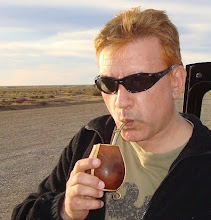
Madre de la tierra, Madre Tierra, o más exactamente, Tierra Madre. Deidad femenina de origen aymará que alcanzó gran difusión en el Imperio Inca. La Pachamama es la madre de los cerros y los hombres, la que madura los frutos y multiplica el ganado, pudiendo conjurar heladas y plagas y dar suerte en la caza.
Cuenta la leyenda, que los conquistadores españoles sedientos de oro y plata, obligaban a los incas a penetrar las entrañas del cerro Potosí en busca de los preciados metales.
Para que estos minerales nunca se agotaran, la Pachamama los transportaba desde el Cachi al Potosí, a través de secretos túneles. En cierto momento, cuando la explotación alcanzaba un ritmo febril, la Madre Tierra, debió pedir ayuda y entonces convocó a Coquena, protector de las llamas, guanacos y vicuñas. Como él no podía entrar en las cavernas, cargaba el oro y la plata a sus amigas las llamas, en alforjas que ataba, para evitar el robo, con serpientes vivas. Coquena se dedicó con ahínco a su trabajo, y muchos aborígenes lo vieron ir y venir con su figura casi cómica, de enano regordete y su mal genio crónico, con su arreo de llamas y el silbido pegado a los labios.
Mother of the earth, Mother Earth, or more exactly, Earth Mother. Feminine deity of origin aymará that reached great diffusion in the Inca Empire. The Pachamama is the mother of the hills and the men, the one that matures the fruits and it multiplies the livestock, being able to plot icy and plagues and to give luck in the hunt.
It counts the legend that the thirsty Spanish conquerors of gold and silver, they forced the Inca to penetrate the bowel of the hill Potosí in search of the valuable metals.
So that these minerals were never drained, the Pachamama transported them from the Cachi to the Potosí, through secret tunnels. In certain moment, when the exploitation reached a feverish rhythm, the Mother Earth, he/she should request help and then it summoned Coquena, protective of the flames, gumps and vicuñas. As him he/she could not enter in the caverns, it loaded the gold and the silver to their friends the flames, in saddlebags that it tied, to avoid the robbery, with alive snakes. Coquena was devoted eagerly to its work, and many aboriginal they saw it to go and to come with its almost comic figure, of plump midget and its bad chronic genius, with its trapping of flames and the whistle hit to the lips.


No comments:
Post a Comment